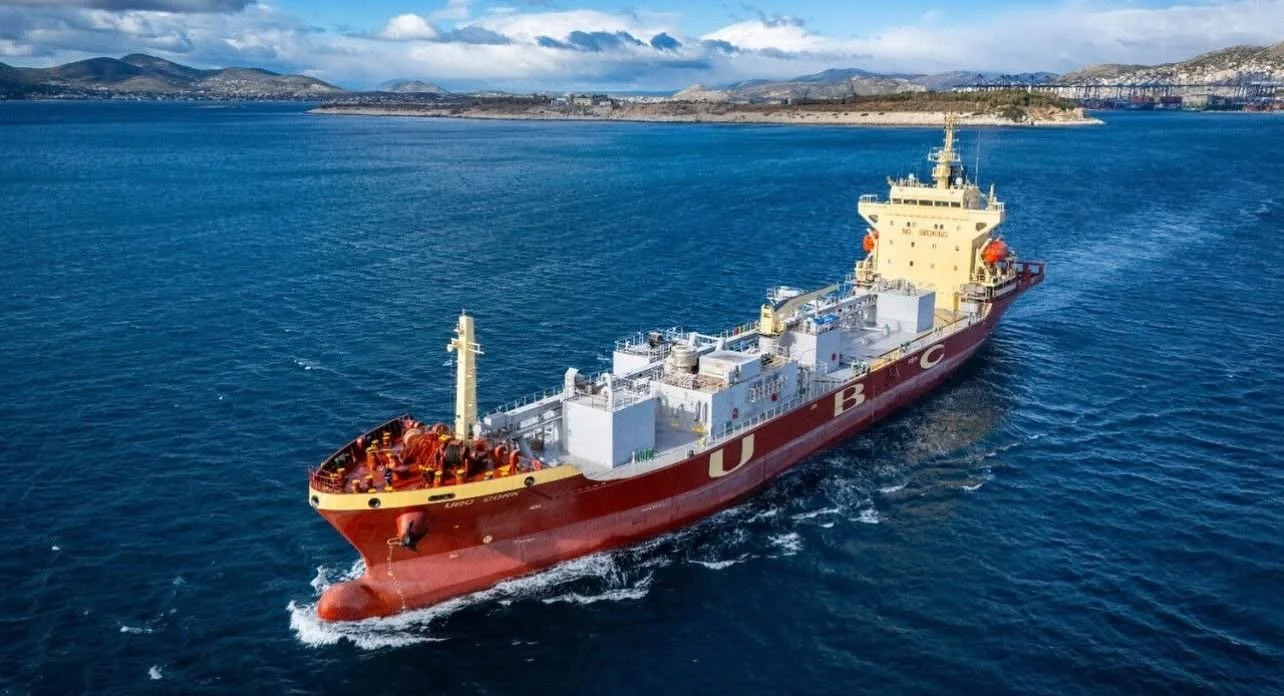Seabound launches world-first onboard marine carbon capture project with Hartmann, InterMaritime and Heidelberg Materials
Seabound, a UK-based leader in marine carbon capture, has launched a first-of-its-kind onboard carbon capture project in partnership with Hartmann Group, Heidelberg Materials Northern Europe, and InterMaritime Group. The solution equips the UBC Cork, a 5,700 gross tonne (GT) cement-carrying ship owned by Hartmann and managed by InterMaritime, with Seabound’s compact carbon capture system.
The captured carbon — bound in limestone and thus stored safely onboard — will be offloaded at the Port of Brevik, Norway, and used in Heidelberg Materials’ Brevik cement plant. Recently inaugurated, this world-first industrial-scale carbon capture facility in the cement industry will produce net-zero concrete.
Seabound’s containerised carbon capture system uses calcium looping technology to capture up to 95% of CO₂ and 98% of sulphur emissions from ship exhaust. The process uses calcium hydroxide, derived from calcium oxide and commonly known as slaked lime, to absorb CO₂ and convert it into limestone that is stored onboard until returning to port.
The containerised system allows for easy installation with minimal vessel modification and is suitable for all vessel types. This design decouples carbon capture from post-processing, resulting in lower energy requirements, faster deployment, and reduced cost compared to traditional liquefied CO₂ systems.
“We’re proud to partner with industry leaders like Heidelberg Materials and Hartmann to deliver scalable carbon capture solutions,” said Alisha Fredriksson, CEO and Co-founder of Seabound. “We’re especially excited to be advancing this work in Brevik, a strategic location that’s rapidly establishing itself as a global hub for CCS with Heidelberg’s world-first facility and the Northern Lights pick up point. Together, we’re demonstrating how onboard carbon capture can accelerate emissions reductions in carbon-intensive sectors.”
The carbon captured on the UBC Cork will be offloaded as limestone at Heidelberg Materials’ Brevik plant, where it will serve as an input in the production of carbon captured cement, which enables net-zero concrete. The Brevik CCS facility is already operational, capturing 400,000 tons of CO2 annually. CO2 transport and storage are provided by Northern Lights, the world’s first cross-border CO₂ storage hub beneath the North Sea.
“Hartmann is committed to embracing and investing in environmentally friendly technologies that reduce our maritime carbon footprint and promote sustainability,” said Capt. Jayant Singh, Director, Pool Manager Operations at Hartmann Group. “By integrating innovative, eco-conscious solutions into our ship owning operations, we aim to contribute positively to the environment while delivering long-term value to the maritime industry and all of our stakeholders.”
“This collaboration will play a key role in advancing carbon capture technology and accelerating its adoption in the shipping industry, marking a critical step toward realising a low-emission future for maritime transport,” added Dieter Rohdenburg, CEO of Intership Navigation Co. Ltd., a member of InterMaritime.

